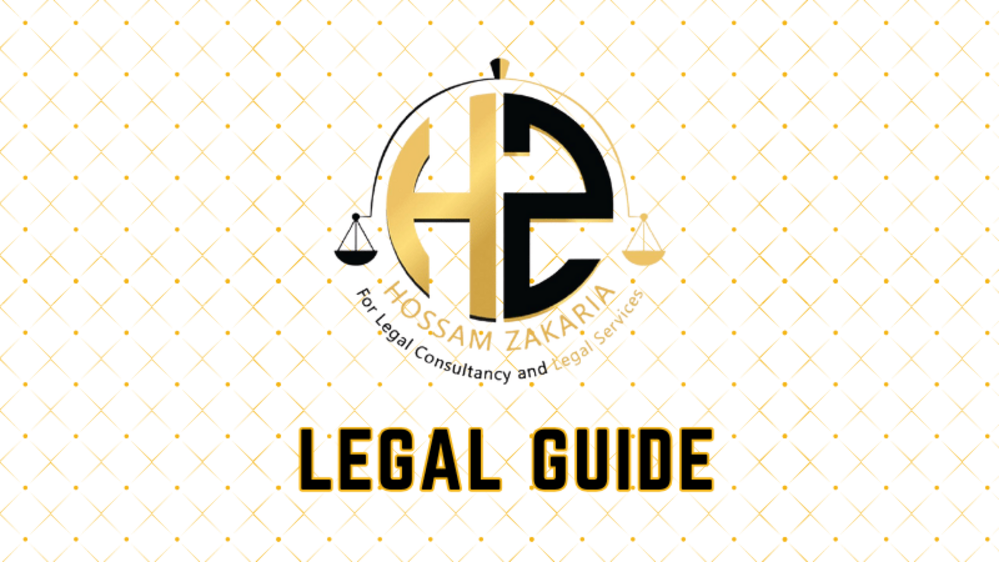Introduction — The Strategic Importance of Licensing Choices in the UAE 2025 Legal Framework
The landscape of commercial activity in the United Arab Emirates (UAE) is continuously evolving to align with ambitious national visions and global business standards. The choice between professional and commercial licenses may appear straightforward, but amid ongoing legal updates—including the anticipated 2025 regulatory reforms—the distinction has never been more significant. Selecting the right license influences corporate structure, tax obligations, Emiratisation requirements, and sector-specific regulations. Recent amendments introduced by Federal Decree-Law No. (36) of 2023 on the Regulation of Commercial Activities and Cabinet Resolution No. (5) of 2024 regarding Business Licensing Procedures underscore the importance of an informed, strategic approach. Whether you are an executive planning a market entry, an HR manager overseeing operational compliance, or a legal advisor evaluating risk, understanding licensing nuances is essential for legal certainty and business success in the UAE.
Table of Contents
- Overview of the Regulatory Framework: Recent Laws and Policy Shifts
- Defining Professional and Commercial Licenses Under UAE Law
- Key Differences Between Professional and Commercial Licenses
- Comparing Legacy and Updated Licensing Provisions (with Table)
- Practical Implications for Businesses and Individuals
- Risks and Penalties of Non-Compliance
- Best Practices and Strategies for License Compliance
- Case Studies and Hypothetical Scenarios
- Conclusion and Forward Guidance
Overview of the Regulatory Framework: Recent Laws and Policy Shifts
The UAE’s commercial licensing environment is governed by an interplay of federal and emirate-level laws. As of 2025, two regulatory instruments are especially noteworthy:
- Federal Decree-Law No. (36) of 2023 on the Regulation of Commercial Activities—which modernizes classifications for business activities, license categories, and enforcement mechanisms.
- Cabinet Resolution No. (5) of 2024 regarding Business Licensing Procedures—which streamlines application processes, digital documentation, and compliance reporting across the Emirates.
These reforms aim to bolster the UAE’s global competitiveness, foster entrepreneurial activity, and ensure robust consumer protections.
Further, local License Departments (notably in Dubai and Abu Dhabi, such as the Department of Economic Development (DED)) implement these federal standards while maintaining some emirate-specific variations in permitted activities or required documentation.
Legislative Hierarchy Explained
The following diagram (suggested visual: Regulatory Authority Flowchart) can clarify the regulatory structure:
- Federal Laws and Decrees (e.g., Decree-Law No. 36/2023)
- Cabinet Resolutions (e.g., Resolution No. 5/2024)
- Ministerial Circulars and Implementation Guidelines
- Local DED or Free Zone Authority Regulations
Understanding which authority applies is critical, as it determines everything from permitted activities to the customs and tax implications of your business model.
Defining Professional and Commercial Licenses Under UAE Law
Professional Licenses
Per Article 7 of Federal Decree-Law No. (36) of 2023, a professional license authorizes individuals or firms to provide specialized, intellectual, or consultancy services. Common examples include:
- Legal Consultancies
- Accounting and Auditing Services
- Medical and Healthcare Practices
- Engineering and Architectural Consulting
- IT and Digital Consultancy
Professional licenses typically require recognized professional qualifications, regulatory approvals (e.g., Ministry of Justice, Ministry of Health and Prevention), and—depending on the sector—specific liability insurances.
Commercial Licenses
Under Article 8 of the same Decree-Law, commercial licenses are granted for activities encompassing the buying, selling, trading, or importing/exporting of goods and tangible products. Common sectors include:
- Retail and Wholesale Trading
- Export and Import Companies
- Real Estate Brokerage Firms
- General Trading Businesses
Commercial licenses generally do not require advanced qualifications but entail compliance with customs, VAT (administered by the Federal Tax Authority), and product safety laws.
Interplay with Free Zones and Mainland Rules
While the broad regulatory dichotomy is established at the federal level, significant distinctions exist between mainland and free zone licensing, especially regarding shareholder composition, repatriation of capital, and the ownership of assets. Businesses must assess where their planned activities best align with prospective benefits and obligations.
Key Differences Between Professional and Commercial Licenses
The nuances between license types go far beyond the permitted activities. Legal advisors frequently encounter questions regarding ownership, local partner requirements, tax consequences, and recruitment options.
Ownership Structure
- Professional License: Typically allows 100% foreign ownership in most emirates, provided the firm appoints a local service agent (LSA) who, under Cabinet Resolution No. 16 of 2021, holds no equity and has limited involvement.
- Commercial License: Historically required 51% UAE national ownership (under Commercial Companies Law No. 2 of 2015), but as of the 2021 Foreign Direct Investment (FDI) liberalization and the updated Commercial Companies Law, most (but not all) activities permit full foreign ownership subject to activity approval. Some strategic sectors remain restricted.
Legal Liability and Business Model
- Professional License: Liability often rests with the individual practitioner(s) or partners. Partnerships can be established as sole proprietorships or civil companies.
- Commercial License: Commercial enterprises typically take the form of limited liability companies (LLCs), with liability limited to the paid-up share capital.
Relevant Taxes and Reporting Standards
- Professional License: Subject to UAE Corporate Tax as of the introduction under Federal Decree-Law No. (47) of 2022, if the firm exceeds the taxable threshold. May also be subject to VAT if services are taxable and turnover exceeds the mandatory registration threshold.
- Commercial License: Corporate tax, VAT, and import/export regulations apply, the specifics depend on annual revenue and the nature of goods traded.
Employment and Sponsorship
- Professional License: Can sponsor skilled employees; must comply with workforce Emiratisation quotas as prescribed by the Ministry of Human Resources and Emiratisation (MoHRE) for certain sectors.
- Commercial License: Able to sponsor a broader range of staff, including unskilled or semi-skilled employees as required by business operations.
Suggested Visual/Table: Summary of Key Differences
| Criteria | Professional License | Commercial License |
|---|---|---|
| Main Activity | Service/Consultancy (Intellectual) | Trading/Buy & Sell (Goods) |
| Ownership (Mainland) | Up to 100% Foreign Ownership (LSA required) | Majority Foreign; some sectors require local partner |
| Legal Form | Civil Company/Sole Proprietorship | LLC/Joint Stock Co. |
| Tax Regime | Corporate Tax, Possible VAT | Corporate Tax, VAT, Customs |
| Employee Sponsorship | Skilled/Professional Staff only | Wide spectrum (incl. labor staff) |
| Regulatory Approval | Often needs sector regulator (e.g., Ministry of Justice) | DED or Zone authority only |
Comparing Legacy and Updated Licensing Provisions (with Table)
2024–2025 regulatory changes have streamlined several licensing mechanics. Here is a concise comparison:
| Parameter | Pre-2023 Law | 2023-2025 Updates |
|---|---|---|
| Ownership Restrictions | Notable limits for foreign investors in commercial licenses | Broadened FDI, near full foreign ownership in most sectors (per MoE List) |
| Licensing Process | Manual, emirate-specific | Unified digital portal, e-signatures (Cabinet Res. 5/2024) |
| Local Service Agent | Mandatory, with broad authority | LSA role reduced to administrative (per Res. 16/2021) |
| Compliance | Paper-based, annual renewals | E-renewals, real-time compliance dashboard |
| Enforcement | Permit suspensions; heavy fines | Escalating penalty regime, remedial rights (Federal Decree 36/2023, Art. 24-28) |
Visual Suggestion:
Compliance Timeline flowchart showing licensing steps under new laws.
Practical Implications for Businesses and Individuals
Selecting the appropriate license impacts your operational risk, client eligibility, and strategic scalability. Consider the following critical areas:
Corporate Structuring and M&A
Choosing an incorrect license type can hinder acquisitions, raise red flags during due diligence, or contravene competition and anti-fraud laws as updated in Federal Decree-Law No. (4) of 2022 on the Regulation of Competition. Misdirected licensing may require full restructuring and additional government oversight.
Tax Risk and Financial Forecasting
Misclassification of a professional operation as commercial—or vice versa—can expose businesses to audit risk, assessment by the Federal Tax Authority, and retrospective liabilities. This was highlighted in several advisory notes issued by the UAE Ministry of Finance in late 2023.
Labour Law and Emiratisation Proceedings
Misreporting license type affects recruitment eligibility and Emiratisation quotas (Cabinet Resolution No. 18 of 2022). Audits under the updated Labour Law (Federal Decree-Law No. 33 of 2021 and amendments) have resulted in fines and recruitment bans for non-conforming companies.
Case Example:
A consulting firm mistakenly opts for a commercial license, restricting its ability to deploy specialized staff under skilled visa categories. The resulting compliance breach leads to the suspension of its HR system access and subsequent penalties by MoHRE.
Risks and Penalties of Non-Compliance
The updated regime under Federal Decree-Law No. (36) of 2023 imposes a layered penalty system for licensing infractions.
| Offence | Penalty (Previous Law) | Penalty (2023-2025 Law) |
|---|---|---|
| Operating without correct license | Up to AED 50,000 fine | AED 100,000 fine + criminal liability in severe cases |
| Incorrect activity registration | License suspension | Escalating fines, mandated correction, public notices |
| Failure to renew license | Surcharge + service cancellation | Digital lockout, fines, blacklisting risks |
Visual Suggestion:
Place a “Compliance Penalty Chart” for visual clarity.
Best Practices and Strategies for License Compliance
Maintaining compliance is an ongoing obligation that demands proactive legal and operational strategies.
License Selection Protocol
- Undertake a legal audit of all intended activities referencing the official DED activity list or free zone equivalents.
- Engage in early consultation with sector regulators, notably if dealing in finance, healthcare, or education.
- Document internal justification for license selection for audit and due diligence.
Corporate Governance
- Appoint a designated Compliance Officer with authority to monitor regulatory updates (particularly via the Federal Legal Gazette and Ministry communications).
- Design systemized reminders for renewals and regulatory filings.
Digital Compliance Management
- Adopt the new e-licensing portal mandated by Cabinet Resolution No. 5 of 2024 to streamline documentation and reduce administrative errors.
- Implement an internal monthly review using compliance dashboards and key performance indicators (KPIs).
HR Integration
- Align licensing with HR practices to ensure labor contracts and visa processing remain within regulatory confines.
- Utilize MoHRE’s digital self-audit toolkit as of January 2024.
Case Studies and Hypothetical Scenarios
Case Study 1: Professional Services Startup
A group of foreign architects partners to launch a UAE-based design consultancy. Choosing a professional license enables 100% foreign ownership, facilitating talent acquisition. However, failure to obtain sector approval from the Dubai Municipality exposes the enterprise to an administrative suspension until review is completed. This highlights the need for multi-tier regulatory navigation even when a correct license is initially secured.
Case Study 2: Trading Enterprise Expansion
An established electronics importer seeks to expand distribution by offering technical support services. Assuming that a commercial license suffices for all operations, the company hires engineering staff for support roles, only to have their labor permits denied. A subsequent review by the DED compels the company to obtain an additional professional license and remedy past recruitment breaches, resulting in operational delays and fines.
Hypothetical Scenario: Non-Compliance Pitfalls
A startup misclassifies its license type, leading to denial of VAT registration due to an activity mismatch. The business incurs six months of lost revenue and rectification expenses, punctuating the necessity of precise licensing during initial setup.
Conclusion and Forward Guidance
The statutory distinction between professional and commercial licenses in the UAE is no mere procedural formality—it is a foundational consideration with cross-cutting implications for tax, recruitment, operational risk, and future investment. The 2023 and 2024 legislative updates, culminating in enhanced digital compliance and broader foreign ownership, have modernized business entry but also heightened scrutiny on proper licensing. For companies and practitioners, diligent legal review, sector-specific due diligence, and strong internal compliance frameworks remain indispensable.
Looking ahead, the UAE’s regulatory direction favors transparency, digitalization, and proactive compliance. Organizations must stay updated with official notifications from the Ministry of Justice, MoHRE, and DEDs, integrating regulatory monitoring into governance policies. For executives, in-house counsel, and HR leaders, partnership with adept legal consultants is the best safeguard against licensing pitfalls—securing business continuity while empowering growth in a globally competitive marketplace.
For tailored advice on your licensing strategy under the UAE’s dynamic legal landscape, consult with our team of specialist legal advisors today.



